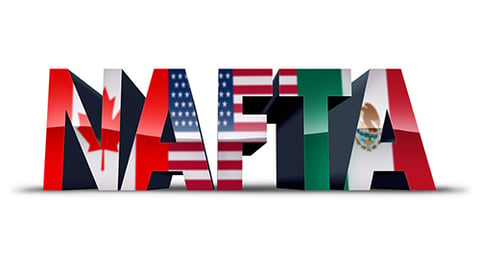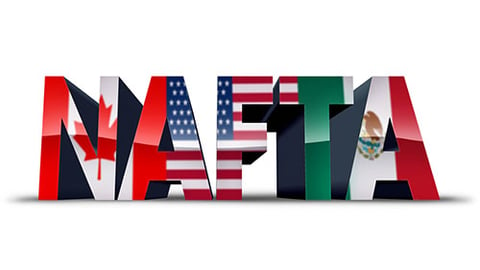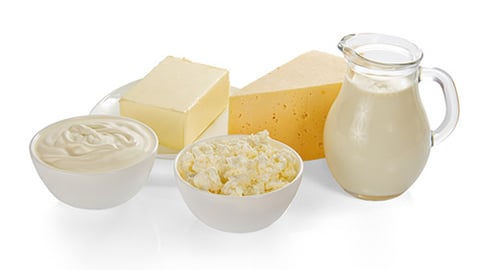Grocers Cheer Signing of NAFTA Successor
Trade groups representing grocers were among the organizations to express their approval of the Nov. 30 signing of the United States-Mexico-Canada Agreement (USMCA) – the successor to the North American Free Trade Agreement – at the Group of 20 (G20) economic conference in Buenos Aires, and urged that the measure be approved by Congress next year.
“FMI is pleased and encouraged by today’s signing of the USMCA," said Andrew Harig, senior director for sustainability, tax and trade at the Arlington, Va.-based Food Marketing Institute. "While there is still work to be done, today’s ceremony is a an important step forward that FMI hopes will create momentum for ratification of the deal by the U.S. Congress in 2019."
According to Harig, closer economic ties among the three countries have benefited U.S. consumers and food retailers by reducing costs, broadening supply networks, improving eating quality, increasing assurance about food safety and lowering product losses.
"NAFTA was the crucial first step in making this possible. and we believe the new USMCA will deepen these ties and continue to support the U.S. food supply as the safest, most wholesome and most affordable in the world,” he added.
The signing of the new trade deal is a "positive step" toward a trilateral agreement that encourages free trade and the importing of essential products sold in independent supermarkets, such as produce, noted Molly Pfaffenroth, director of government relations at the Arlington-based National Grocers Association, which advocates for the independent grocery sector.
"We hope the Administration and Congress will work to address outstanding concerns, such as the current imposed steel and aluminum tariffs,” she said.
And at 25 years old, NAFTA was in dire need of an update, especially when it comes to areas that didn't exist a quarter-century ago, such as ecommerce, said Matthew Shay, president and CEO of Washington, D.C.-based NRF, the world’s largest retail trade association, whose members include grocers.
“This new pact takes many important steps toward giving us a modern trade agreement with our two neighboring countries and continues the trilateral framework that protects North American supply chains, supports millions of U.S. jobs and helps retailers provide American families with the products they need at prices they can afford,” he noted. “While there may be disagreements over details, it is critical that Congress approves this agreement in 2019 and that NAFTA remains in place until that can be done. The administration should continue to work to quickly resolve the outstanding issues. Withdrawal without a replacement is simply not an option. We also encourage the administration to remove the steel and aluminum tariffs from Canada and Mexico now that the agreement is signed.”
President Donald J. Trump, Canadian Prime Minister Justin Trudeau and Mexican President Enrique Pena Nieto were signatories to the agreement, which is subject not only subject to approval by the U.S. Congress, but also votes in the Canadian Parliament and the Mexican Congress.





